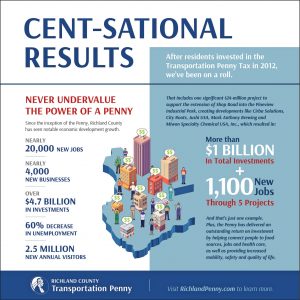BLYTHEWOOD – Groups that rely on Blythewood tourism dollars to survive are pushing back on the town’s desire to take a larger portion for itself.
Town leaders, however, say more revenue is needed to fund capital projects like ball fields, recreation venues and tourism-generated projects given the town’s no-millage status.
There appeared to be little middle ground at a Hospitality and Accommodations Tax Committee town hall Thursday. Council members Donald Brock and Rich McKenrick hosted the event and about 20 non-profit and for-profit representatives attended.
“We want to be fair, we want to be open, and we want to be transparent. We’re looking for feedback,” Brock said. “We want the community, the citizens, to give us feedback on how we’re doing business.”
Brock read a list of ways the hospitality and accommodation taxes can be used:
- Tourism-related buildings including, but not limited to, civic centers, coliseums, and aquariums
- Tourism-related cultural, recreational, or historic facilities
- Beach access, re-nourishment, or other tourism-related lands and water access
- Highways, roads, streets, and bridges providing access to tourist destinations
- Advertisements and promotions related to tourism development
- Water and sewer infrastructure to serve tourism-related demand.
Blythewood presently divvies up funds from a pool of state and local accommodations and local hospitality taxes. A-Taxes are charged on hotel and lodging while the H-Tax is levied on prepared food.
Non-profits and, in Blythewood, for-profits seeking funds must submit an application. Approved applicants receive 80% up front, with the remaining 20% paid out following a post-event report to Blythewood Town Council.
But Blythewood itself also draws upon tourism funds. It taps about $320,000 each year to pay back the $5 million Blythewood Facilities Corporation bond that was levied in 2010 to build Doko Park and Manor.
The council at that time had planned to repay the bond with a general obligation bond “revenue stream” that is allowed under the facilities corporation rules. When voters pushed back against council’s effort to pass the general obligation bond, the council turned to the H-tax revenue to make the $5 million bond payments.
In FY 2021-2022, the town transferred $150,000 from the town H-Tax fund to the General Fund, according to budget records.
Council members say more revenue is needed to pay for needed capital projects to meet residents’ needs. They cite the town’s no-millage status, increased demand, and rising costs due to inflation.
“Council as a whole feels like there’s more we can do with these funds besides looking at the balance and divvying out funds to those who request funds,” McKenrick said.
That position found little support among those representatives attending, some of whom say their organizations and events have come to rely on tourism funds to survive.
Malcolm Gordge, representing Camp Discovery, noted nonprofits are facing inflation too. Gordge also reminded town leaders they previously were content with private groups to run special events.
“It was too much overhead, too much expenditures and time,” he said. “Council was more than happy for non-profits and anyone else to come forward with an event that would be a benefit for the town.”
That council uses H-Tax to fund sports teams from Blythewood and Westwood High Schools to the tune of more than $100,000 a year also irritated some of those in attendance.
The representative for Range Fore Golf suggested that the high schools should have some skin in the game when it comes to funding fields for their students.
“If the town is giving H-Tax to Blythewood and Westwood High School teams, then as a Town [government], shouldn’t you be able to say hey, we would love to have some usage of your fields?” he asked. “Finding field space is impossible, and the schools charge a field usage fee.”
Gina Dow, who runs the non-profit Blythewood Bengals football program and cheer squad, suggested the town’s A-Tax and H-Tax system might present a conflict of interest if the town competes with nonprofits for funds.
“My concern is that as we move forward, how do you define where the lines are not blurred?” one man asked. “We have to come to a definitive place where the lines are not blurred.”
Brock denied any conflicts of interest exist.
“I really don’t feel like that’s a fair analysis simply because this council has a fiduciary duty to satisfy debts and liabilities associated with the town first and foremost before we allocate funds outside the government,” he said.
Brock also dismissed the concern that nonprofit bottom lines would suffer if the town increased its share of tourism funding.
“I can’t think of a single event that wouldn’t occur in this town if they lost 50% of their funding. They would find a way to do it,” he said.
Town leaders blame their financial predicament partly on Act 388, which limits the ability of local governments [who don’t already have a property tax] to raise taxes. The Act was adopted in response to skyrocketing property tax bills caused by surging property values. While targeting excessive millage increases elsewhere, the Act prevents Blythewood from establishing its own millage, town leaders say.
Blythewood voted to abolish property taxes in 2004, making it one of two or three municipalities in the state where residents don’t pay property taxes. Business licenses, permits, franchise fees (Winnsboro water), an insurance tax collection program, local option sales tax, aid to subdivisions, and a few other smaller revenues sustain the town financially.
Town Administrator Carroll Williamson said the Municipal Association of South Carolina is lobbying state lawmakers to address no-millage municipalities.












